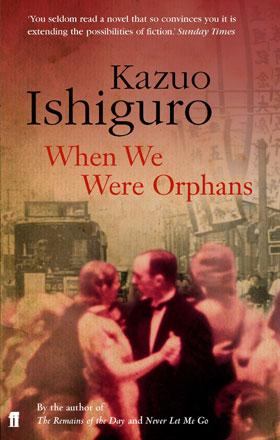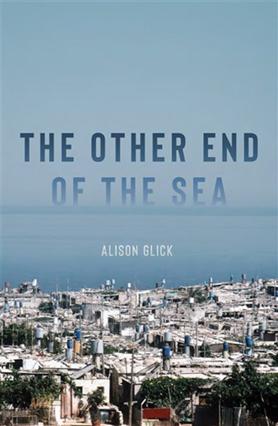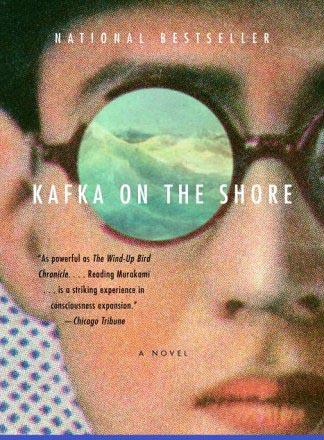You are here
Through the eyes of child
By Sally Bland - Sep 16,2018 - Last updated at Sep 16,2018

When We Were Orphans
Kazuo Ishiguro
US: Vintage International, 2001
Pp. 336
Nobel Prize-winning author Kazuo Ishiguro’s “When We Were Orphans” unfolds in the years between the two world wars, and the tone of the novel follows this downward spiral. At first, there is optimism that “mankind had learnt from its mistakes” and the horrors of World War I would not be repeated. (p. 43)
Yet, as the story moves from London to Shanghai, the mood darkens: Nazism is advancing in Europe, and Japan’s invasion of China has already begun.
Parallel to proclamations about a better future, many of the English characters aspire to illustrious careers that will make the world a better place. Ironically, most of those in Shanghai are doing just the opposite, for they are part of the colonial enterprise which is severely damaging Chinese society by promoting the opium trade. As narrator Christopher Banks remarks on returning to Shanghai after an absence of over twenty years: “What has quietly shocked me, from the moment of my arrival, is the refusal of everyone here to acknowledge their drastic culpability… here they now were, the so-called elite of Shanghai, treating with such contempt the suffering of their Chinese neighbours across the canal.” (p. 173)
Hypocrisy and colonial exploitation are obvious themes, but Ishiguro, by making Banks the protagonist, introduces other, more subtle human themes, such as that of the outsider. Born of English parents in the International Settlement in Shanghai, Banks dreams of being a great detective who will rid the world of evil and criminality. Many of his childhood games echo this ambition as he plays with Akira, the Japanese boy who lives next door. But Banks’s parents disappear when he is ten years old, and he is sent to boarding school in England. Akira is sent to Japan because his parents feel he is losing his Japanese identity.
Again, Ishiguro employs irony to show the fallacy of the adults’ decisions: It is assumed the boys are being sent home, but actually both feel like outsiders in their presumed home country. Thus, Ishiguro shows that hybrid personalities are not only a product of today’s globalisation, but have long existed in various forms. Perhaps he is especially qualified to write on this theme for his family moved from Japan to England when he was five years old, and it is the latter country which he considers home, and English is the language in which he writes. It is interesting that his father grew up in Shanghai, the setting for much of this novel.
Memory, and how it recalibrates actual experience, especially if trauma is involved, is also a theme as Banks relates the past in flashbacks. For many years he doesn’t speak of his childhood to anyone in England, yet he is constantly reworking it in his own mind. Reaching adulthood, he fears his memories are getting hazy, and he begins to supplement them with research at the British Museum on the history of the opium trade, the activities of his father’s company and the political situation in Shanghai at that time.
“I suppose it was, at least in part, my attempt as an adult to grasp the nature of those forces which as a child I could not have had the chance of comprehending. It was also my intention to prepare my ground for the day I began in earnest my investigations into the whole affair concerning my parents — which despite the continuing efforts of the Shanghai police had remained unresolved to this day.” (p. 119)
Over time, he begins to make connections.
One may wonder why Banks waits so long to investigate his parents’ disappearance and how he can believe that time has stood still and they are alive more than twenty years later. His self-justification of having had so many relentless demands on his time seems rather disingenuous. Perhaps his procrastination, like his general lack of self-assurance or initiative, is a result of the trauma he experienced when separated from his parents at a young age. Equally, his procrastination underlines another theme in the novel, again an irony, that in seeking grand dreams, people often neglect the chance to make life better for those close by.
When Banks finally returns to Shanghai, his world is turned upside down. Having as a child been forbidden to leave the confines of the International Settlement, the rest of Shanghai with its poverty and now open warfare come as a shock. Initially, his investigation of his parents’ fate proceeds slowly, but when he finally gets a promising lead, he unwittingly wades into a battlefield, whether to find his parents or himself, one is not sure.
Crossing several genres — historical novel, detective story, psychological drama, war story, coming of age — Ishiguro’s masterful prose is equally adept at conveying the warmth of love and the horrors of war and betrayal. The fact that much of the story is related through the eyes of a child makes it all the more compelling. In a new, imaginative way, Ishiguro queries whether a new generation can repair the damage inflicted on the world by previous ones.
Related Articles
“Dreams of Joy” features a Chinese family that is torn apart by personal failings, war and post-revolutionary borders, but persists in trying to reconstruct itself.
This is a love story with more than one twist. Nothing is completely standard or expected, whether the characters, setting, plot events or conclusion. “The Other End of the Sea” is American writer Alison Glick’s first novel, and she bases it largely on her own experience living in Palestine and Syria in the 1980s and early 1990s.
There is an unusual, haunting love story intertwined with a coming-of-age novel, both infused with elements of myth, science fiction, philosophy and multiple cultural references.


















